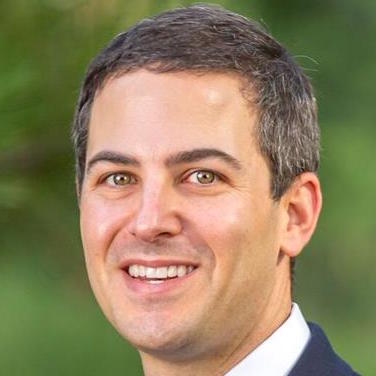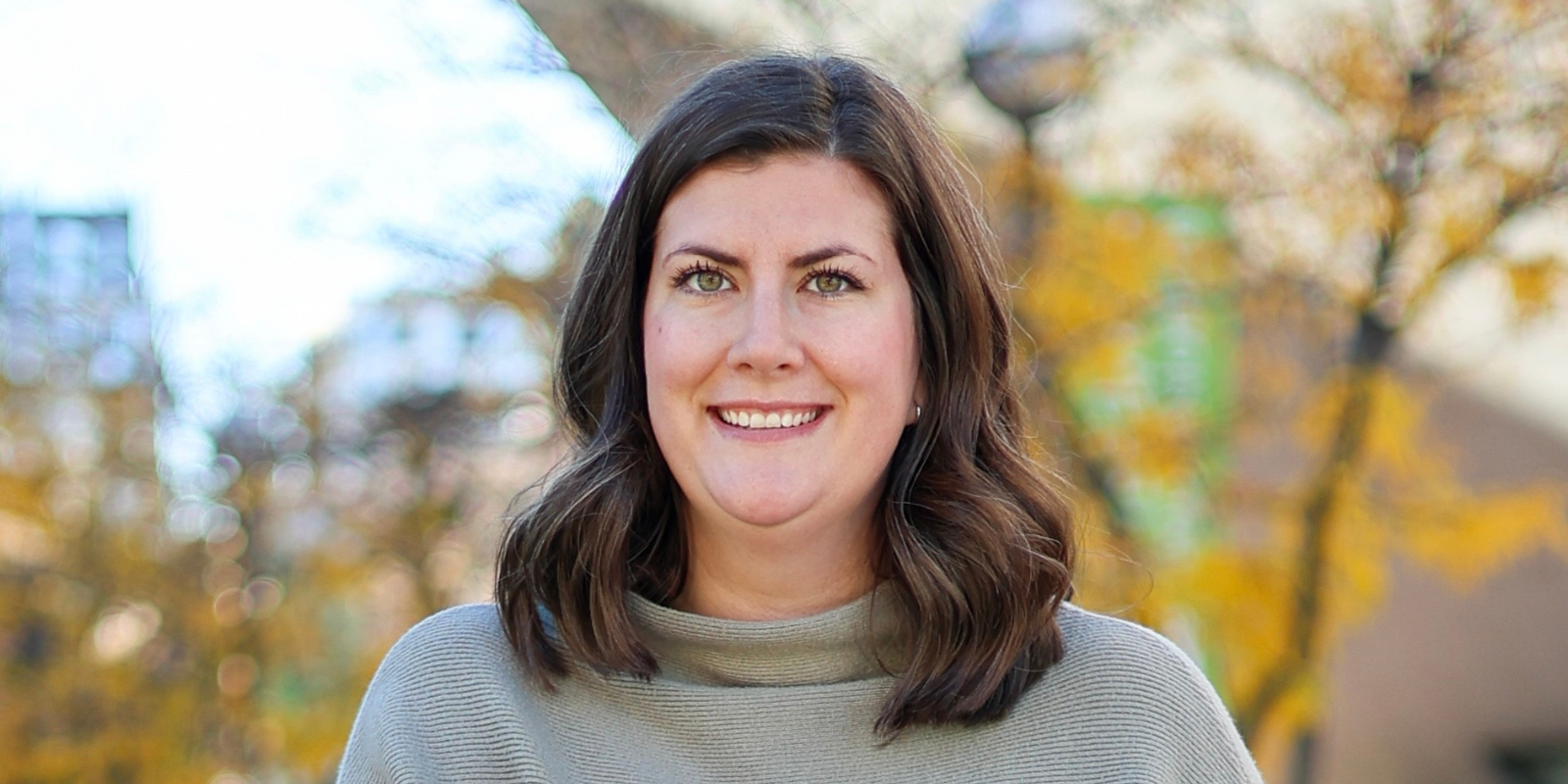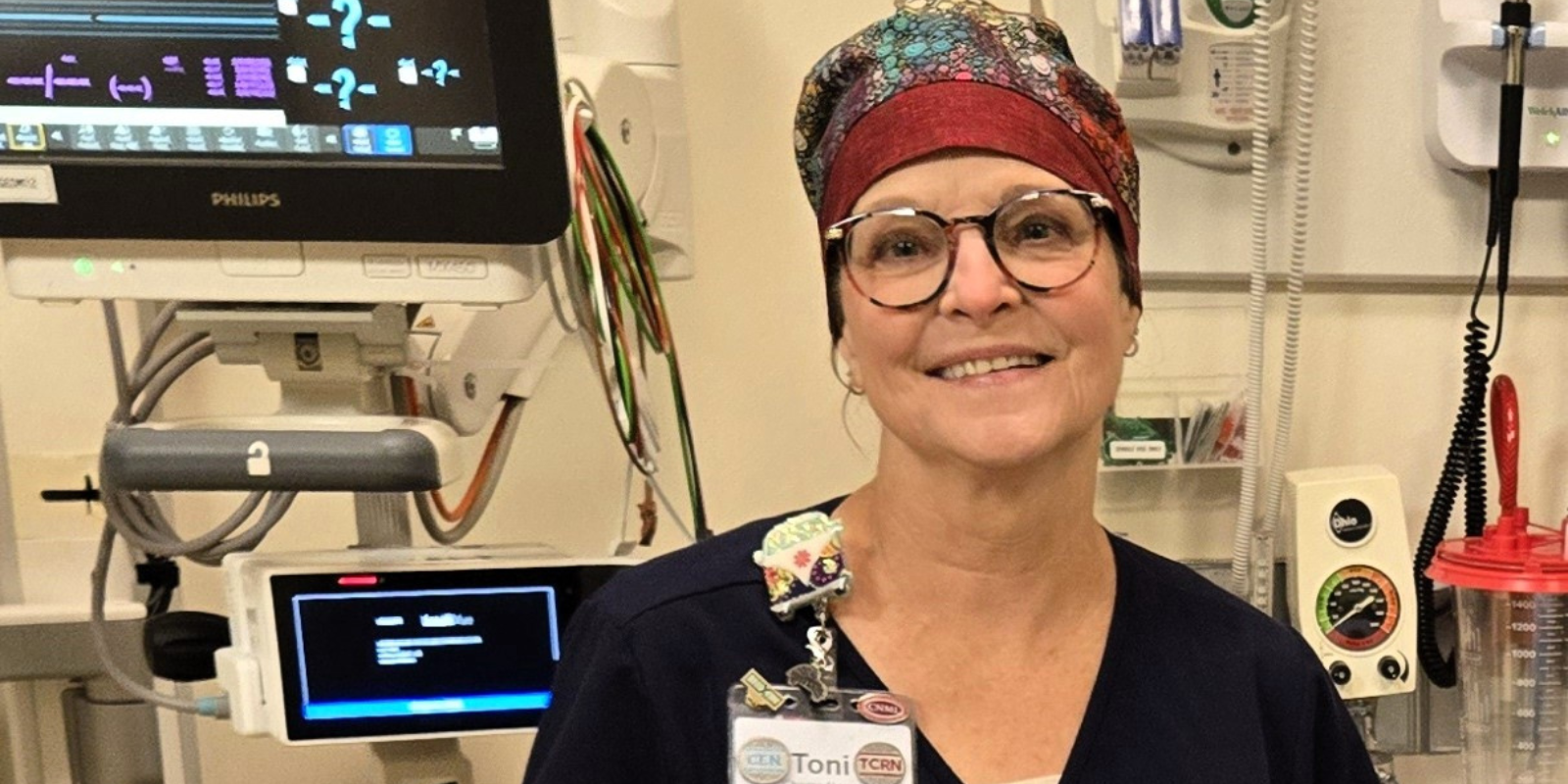According to her race medals, Charlotte Butler has walked all over the place. On trails in Spain, France, Ireland, and the Netherlands, not to mention the Rocky Mountains and other spots in the U.S.
In actuality, most of those walks were virtual — miles logged as she did laps around the reservoir near her home in Aurora, Colorado, and tracked on maps of trails around the world on the Conqueror Virtual Challenges website.
“The very first medal I earned was the Camino de Santiago, which is a historic pilgrimage route across the top of Spain and France,” Butler says. “It's 480 miles. So I walked 480 miles around and around the reservoir, and they sent me a medal. I've done quite a few since then as well.”
But virtual miles are no less meaningful to Butler, especially after an endometrial cancer diagnosis that at one point landed her in the hospital with a series of small strokes.
She has the added confidence of having taken part in a clinical trial at the University of Colorado Cancer Center, led by Bradley Corr, MD, to prevent recurrence in people with endometrial (or uterine) cancer.
→ Clinical Trial Shows Rucaparib Extends Progression-Free Survival for Uterine Cancer Patients
“Dr. Corr inspired confidence and helped us relax,” says Butler, 74. “My husband and my son joined me at my appointments, so they experienced working with him as well. I felt that he knew what he was doing, and I appreciated not only the treatment I was getting, but how he made me feel in the process.”
Diagnosed with uterine cancer
Butler’s cancer journey began in fall 2021, when she noticed abnormal vaginal bleeding. Her doctors at Kaiser Permanente Colorado quickly diagnosed her with stage 1 endometrial cancer — an early-stage cancer that had not spread to other parts of the body — and performed a hysterectomy to remove the cancer. That was followed by a sequence of six radiation treatments, a safety measure to kill any remaining microscopic cancer cells.
Everything seemed fine until the following March, when Butler’s husband, Rick, noticed that Charlotte wasn’t responding to him the way she normally did. Something seemed off.
 Butler and her husband, Rick. Photos courtesy of Charlotte Butler and Gaye Lynn Past
Butler and her husband, Rick. Photos courtesy of Charlotte Butler and Gaye Lynn Past
“He took her to the hospital, and they discovered she had had a stroke,” says Charlotte and Rick’s daughter, Gaye Lynn Rast. “And that's when it all spiraled out of control. From there, multiple strokes happened, and we didn’t know where they were coming from or why they were happening.”
Doctors soon discovered that a small amount of cancer remaining in Butler’s bloodstream was causing disseminated intravascular coagulation (DIC), a rare blood disorder that causes abnormal clotting in the blood vessels. They began treating Butler with chemotherapy while she was in the ICU in an effort to stop the strokes.
“Her platelet count, which is supposed to be in the hundreds of thousands, had gone down into single digits,” Rast says. “She ended up having a blood transfusion at one point, and that was super scary. It was a long road. Once they found the cancer and gave her that first round of chemo in the ICU, she started getting better. She was able to be at home for the rest of the treatments, which took over six months. All three of us kids took turns, and we never left her side throughout the rest of that process.”
Joining a clinical trial
After the chemo treatments, Butler’s cancer was finally under control, and her doctors at Kaiser wanted to make sure it stayed that way. Her Kaiser oncologist was associates with Corr, and she knew Corr was overseeing a multisite clinical trial to see if the oral drug rucaparib, part of a class of drugs known as PARP inhibitors, extends progression-free survival for uterine cancer patients who have completed the chemotherapy portion of their treatment.
The study, which has since closed, found that rucaparib extends progression-free survival for an average of 19 months longer than surveillance alone. The current standard of care is surveillance, so the trial showed an alternative option that is beneficial for patients.
“My big fear, of course, was the DIC coming back,” Butler says. “I was really worried about that, and I knew the only way to protect from that was to keep the cancer in check. The drug study felt like a protective shield for me.”
Butler qualified for the trial and began taking two pills each morning and two each afternoon. The trial was double-blinded, meaning neither Butler nor Corr knew if she was taking a placebo or the actual medicine, but either way, there was value in Butler being part of the study, her daughter says.
“There wasn't anything to lose,” Rast says, “and if anything, she was going to have an extra set of eyes on her and extra tests to make sure her numbers were in check. We all came out of that earlier experience with a slight case of PTSD from worrying about her numbers so much, so this was just reassurance that if it comes back, we're going to catch it early and have a handle on it.”
 Butler and her daughter Gaye Lynn Rast.
Butler and her daughter Gaye Lynn Rast.
Butler was on the clinical trial for 16 months before it was terminated when the company that made rucaparib went out of business. At that time, Butler learned she was in the group that received rucaparib while she was on the study.
Corr says patients like Butler, who participated in the trial, provided valuable data about how PARP inhibitors can be used going forward to prevent recurrence of uterine cancer.
“She has an endometrial cancer with a high risk of recurrence, and she never recurred the entire time she was on therapy,” Corr says. “We believe she’s one of the people who showed significant benefit from this therapy.”
Corr says Butler was also fortunate that her oncologist at Kaiser was able to refer her to a clinical trial at another institution.
“I've got a good relationship with all the medical oncologists at Kaiser, and they will refer patients for clinical trials they can't accrue to,” he says. “Since this was a local trial that we advertised to them and they knew about, they sent over a handful of patients. Charlotte was one of them, and she did great on the trial.”
Gratitude journey
Butler is now back under the care of her oncologist at Kaiser, who conducts regular checkups to make sure the cancer isn’t coming back. The possibility of a recurrence is always there, but Butler tries her best to push those thoughts from her mind and focus on the sense of gratitude her cancer journey has brought her.
 Butler's collection of race ribbons from Conqueror Virtual Challenges.
Butler's collection of race ribbons from Conqueror Virtual Challenges.
“It’s remembering the fact that if things had gone differently. I would not be here at this moment, doing these things, or seeing the wildlife and the sailboats out at the reservoir that I get to see,” she says. “My family — my husband, my kids, my grandkids — I am thankful every day for them and for all of the support they gave me. They helped manage the appointments and kept me uplifted and positive and focused and all the things that you're supposed to be on a cancer journey. A number of different doctors commented on it and said, ‘Most people don’t have the kind of support system that you have. They literally saved your life.’”
Butler’s support extended well beyond her immediate family, her daughter says.
“She had an army of prayer warriors, including her extended family and even strangers in Texas and California, who rallied around her,” Rast says. “They constantly asked us, her children, for updates and specific ways to pray for her. This mighty army of supporters continues to uplift her even today. My heart smiles big every time my friends and clients still think to ask, ‘How’s your mom doing?’”
Staying motivated
Throughout the whole journey, Butler had her virtual walking challenges to keep her fit and motivated. Via the Conqueror app, she traveled to Brazil, Transylvania, China, and Scotland, as well as Yosemite National Park.
“I had already started on the Camino challenge when I was first diagnosed, so it gave me something to keep working toward as I also worked through my treatments,” she says. “Being able to go on Google Street View, which is integrated into the app, and see exactly where I am in all these interesting places added an element of fun and encouragement to the treatments. It also had the side benefit of added strength and fitness. I have no doubt that this was a crucial part of my recovery, not to mention my survival from the DIC.”
Featured photo: Charlotte Butler looks at her collection of race ribbons.




